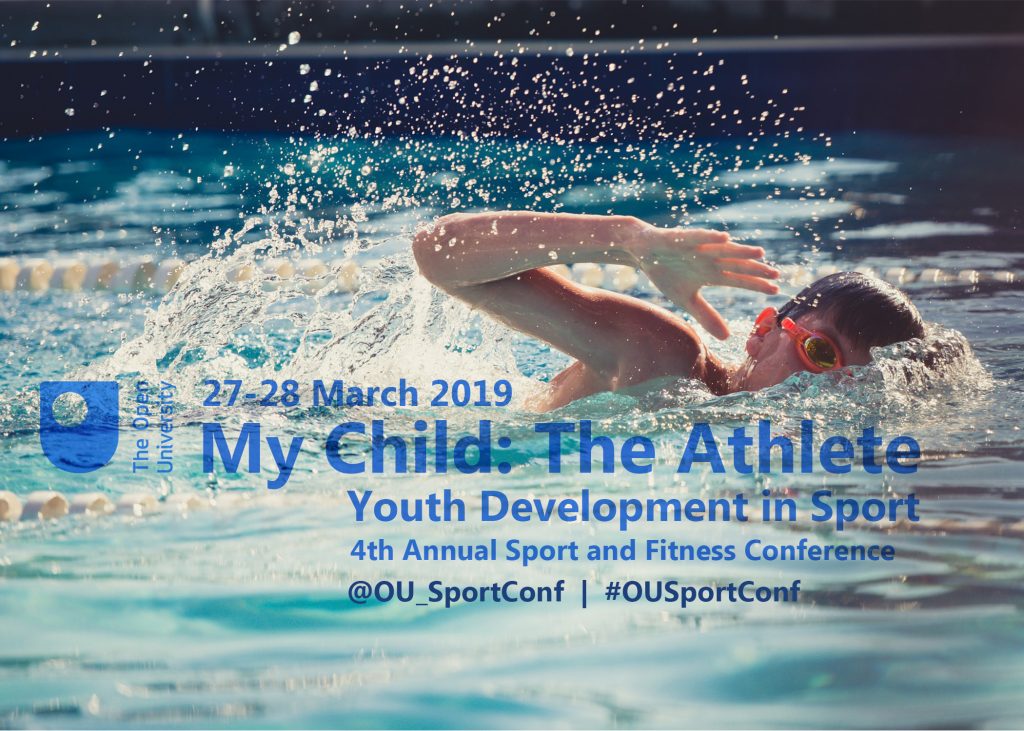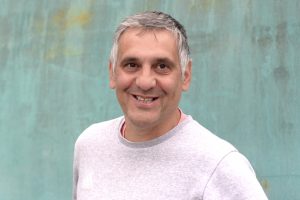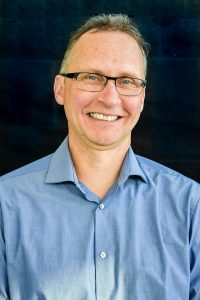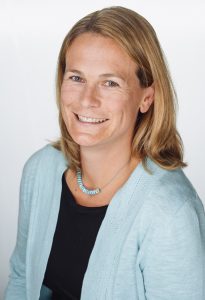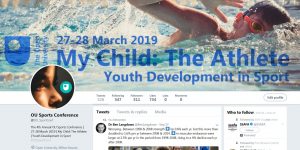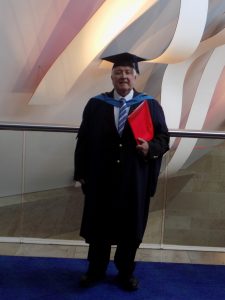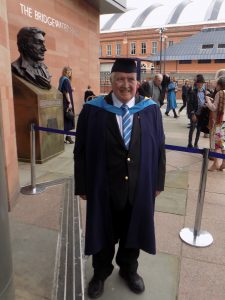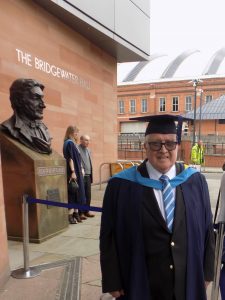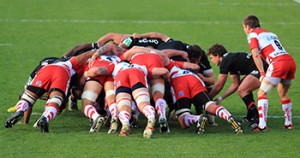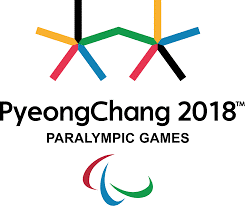By Simon Penn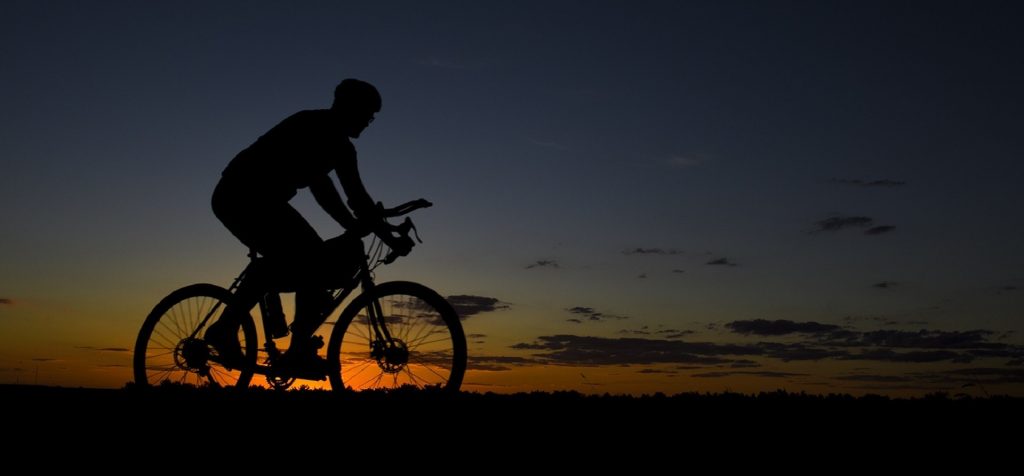 Every morning when I drive my daughter to nursery, I pass multiple cyclists commuting to work in the cold, dark and sometimes wet conditions. I emphasise to my daughter how motivated these cyclists are and that they should be commended for their dedication to maintaining their exercise routine as the winter draws in. I say this because I, like many, am a fair-weather trainer who loves exercising outside in the summer but struggle to exercise in the winter.Research shows that environmental variables (e.g. temperature, length of day and precipitation) can all affect our ability to maintain our levels of physical activity (Welch et al., 2018; Wagner et al., 2014). To stay healthy, we should be completing 150 minutes of moderate, or 75 minutes of vigorous intensity exercise and some strength training a week (Department of Health, 2011). In the winter, reduced daylight and lower temperatures both cause a reduction in an individual’s total minutes of physical activity carried out per day (Welch et al., 2018). So, how can we overcome the winter blues and increase our motivation to exercise?
Every morning when I drive my daughter to nursery, I pass multiple cyclists commuting to work in the cold, dark and sometimes wet conditions. I emphasise to my daughter how motivated these cyclists are and that they should be commended for their dedication to maintaining their exercise routine as the winter draws in. I say this because I, like many, am a fair-weather trainer who loves exercising outside in the summer but struggle to exercise in the winter.Research shows that environmental variables (e.g. temperature, length of day and precipitation) can all affect our ability to maintain our levels of physical activity (Welch et al., 2018; Wagner et al., 2014). To stay healthy, we should be completing 150 minutes of moderate, or 75 minutes of vigorous intensity exercise and some strength training a week (Department of Health, 2011). In the winter, reduced daylight and lower temperatures both cause a reduction in an individual’s total minutes of physical activity carried out per day (Welch et al., 2018). So, how can we overcome the winter blues and increase our motivation to exercise?
Understanding psychology can help to boost our motivation. We need to identify the barriers that prevent us from exercising in order to establish effective compensatory techniques to overcome the barriers. Additionally, setting appropriate goals can increase our effort and perseverance to an exercise routine because they provide purpose and direction to training (Wilson and Brookfield, 2009).
Removing Barriers
When we wake up in the morning with the aim to exercise, it may then be too dark, cold or wet to get us moving. So, what can we do? If you do not like the cold or the rain, treat yourself to some warmer/waterproof clothing or look at the weather forecast and plan your day so that you can exercise when it is not raining or during the warmest part of the day. If you do not like the dark or exercising alone, exercise at lunch in built up areas or find a buddy to train with so that you will have company and an additional reason for completing the session (so not to let your friend down). Local running clubs are a great way for runners of all levels to help increase their commitment to exercise. 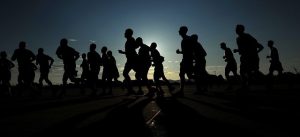 Lastly, one of the most important things when planning exercise is to choose something that you like and enjoy. If you don’t like running, then don’t plan to run because you will spend more time debating whether to run or not. Work out how to do your exercise of choice. If you like cycling or rowing, can you purchase a second-hand indoor bike/rower to replicate your training inside? Once you have removed your barriers to exercise, you can then determine why you are going to train.
Lastly, one of the most important things when planning exercise is to choose something that you like and enjoy. If you don’t like running, then don’t plan to run because you will spend more time debating whether to run or not. Work out how to do your exercise of choice. If you like cycling or rowing, can you purchase a second-hand indoor bike/rower to replicate your training inside? Once you have removed your barriers to exercise, you can then determine why you are going to train.
Setting Goals
One of the most useful motivational strategies is that of goal setting and when applied effectively it can provide direction to your training. For optimal goal setting, the goal should be applicable to your training. For example, aiming to complete a future event (e.g. run, cycle, triathlon) will provide purpose to your training and establish a timescale to complete the training by. To increase your motivation, goals should be difficult, yet achievable (Weinberg and Gould, 2015). Therefore, when deciding on your long-term goal, make sure that it is challenging and that you can measure your success (e.g. completing the event or not). To improve the chance of succeeding in your long-term goal, break the goal into short and medium-term goals. For example, if increasing the distance in an event (e.g. 5 km to 10 km), your long-term goal may be to complete 10 km within 12 weeks. Appropriate short and medium-term goals would be to complete 7 km within 4 weeks and 9 km by 8 weeks. Additionally, you can set process goals (things that will help you achieve your long-term goal) such as weekly targets (e.g. complete a minimum of three 60-minute sessions) which can provide daily motivation. Setting the right goals and using them effectively will help you to beat winter.
Beating winter?
I have already begun to beat winter. I removed my barriers (the cold and mornings) by purchasing cycle overshoes and exercising at the warmest part of the day. Then I set my goals:
- Long-term: Bath duathlon (16 March 2019)
- Short term: Run 5 km in 22 minutes by Christmas
- Medium term: Run 5 km in 21 minutes by February
- Process goals: 2 cycles and 2 runs a week
Can you beat winter too, and become as motivated as the dedicated cyclists commuting to work that my daughter and I applaud? Understanding your barriers, setting appropriate goals and planning exercise that you enjoy will help you keep fit and healthy over the winter. Good luck.
References
Department of Health (2011) ‘Start Active, Stay Active: A report on physical activity for health from the four home countries’ Chief Medical Officers’, London, The Department of Health.
Wagner, A. L., Keusch, F., Yan, T. and Clarke, P. J., 2016. The impact of weather on summer and winter exercise behaviors. Journal of Sport and Health Science. doi: 10.1016/j.jshs.2016.07.007
Weinberg, R. S. and Gould, D. (2014) ‘Foundations of Sport and Exercise Psychology’, 6th edn, Champaign, Illinois, Human Kinetics.
Welch, W. A., Spring, B., Phillips, S. M. and Siddique, J. (2018) ‘Moderating effects of weather-related factors on a physical activity intervention’, American Journal of Preventive Medicine, vol. 54, no. 5, pp. e83-e89.
Wilson, K. and Brookfield, D. (2009) ‘Effect of goal setting on motivation and adherence in a six-week exercise program’, International Journal of Sport and Exercise Psychology, vol. 7, no. 1, pp. 89–100.


